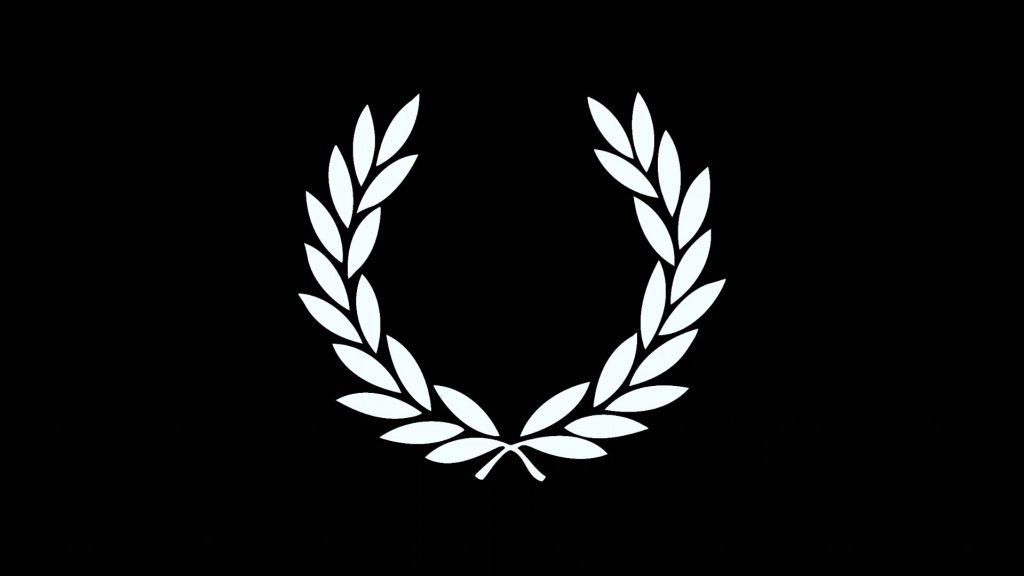by Desiree Pore
Knowing everything about the brands you wear has never been a pre-requisite for you to wear them. But Have you ever looked at the green open-mouthed crocodile at the left side of the shirts your father proudly wears and wonder if it had any more meaning than that? Do you find yourself pondering about the reason behind that random leaf that had become synonymous to Fred Perry?
Chances are you’re not alone. Unbeknownst to most people, the pioneers of the modern fashion world shares a strong affinity with the ancient and natural world to which they had borrowed symbols to epitomize the ideas that they want their brand to stand for.

Fred Perry – the laurel wreath
The namesake of triple Wimbledon champion Frederick John Perry, more commonly known as Fred Perry, it is not hard to see why the brand chose the laurel wreath – a perennial image of victory – as their logo. Since the ancient times, winners of the Olympic Games are graced with laurel wreaths in their heads to symbolize their success. The logo is also the original symbol of the Wimbledon, the prestigious haven for tennis excellence. If there’s one thing that Fred Perry is trying to constantly remind us – it is that he embodies winning. Fortunately for him, the records and clothing don’t lie.
Lacoste – Crocodile
Founded by French tennis stars Rene Lacoste and Andre Gillier in 1933, the brand had become a status symbol across the world. Its reptilian logo is one of the most iconic symbols in the sporting and fashion world. It dates its origin from the time Lacoste won a wager with the captain of the French Davis Cup team in 1927. The prize was an alligator-skinned suitcase. Due to this event, Lacoste was dubbed by the American press as “The Alligator”. Upon returning to France, “the Alligator” somehow turned into “the Crocodile.” Lacoste became so attached to the nickname that he embroidered a giant crocodile into his blazer – an idea that stuck around to define one of the fashion world’s most heralded brands.
Nike – Swoosh
From their name to their ambassadors, Nike wants you to know that they represent winning and their logo is no exception. To many, the company’s logo is but a swoosh but in fact it represents the wings of Nike, the Greek goddess of victory. Now one of the most recognizable symbols in the world, there is little doubt that Nike had done well in riding its wings to greatness and in creating a winning tradition like no other.
American Eagle Outfitters – the American bald eagle
The American Eagle Outfitters is one of America’s most iconic brands. Needless to say, their logo – An American bald eagle – typifies the company’s sense of Americanism. It’s a brand by Americans for Americans and – with Americanization spreading its reign across the seas – for the rest world.
Versace – Medusa
Gianni Versace found the inspiration for the logo of his company in floors of the Roman ruins he once played in as a child. The floor was emblazoned with an image of Medusa, one of the most compelling and deadliest figures in ancient Greek mythology. The lore depicts Medusa as a beautiful woman cursed to have a head full of snakes and a gaze that turns people into stone when they look into her eyes, thus there is no turning back for those who falls for her allure. It is the House of Versace’s sincere wish to have the same effect on their clients.
Brooks Brothers – the Golden Fleece
Aside from dressing up the presidents of the United States and elite of Manhattan Island’s Upper East Side, Brooks Brothers is best known for their logo – a lamb suspended from a ribbon. In mid-19th century London, this symbol was used to hang over the doors of the shops that sell the finest woolen. In ancient Greek mythology, the Golden Fleece is a winged ram with golden wool that had become a symbol of kingship. It must be noted that the image is also the symbol of the Order of the Golden Fleece, one of the most prestigious orders in all of Europe. The logo first appeared above Brooks Brothers’ New York store in a bid to allude to the quality of their products and to pay homage to the symbol’s legendary history.
The list goes on and on. Every fashion logo, nay, every logo has a story behind – one that exemplifies its defining principles. So the next time you go out shopping, find out the meaning of logo of the brand you are about spend your hard-earned money on and see if its philosophies aligns with yours.